Coming to grips with poverty
HOW does one begin to solve the economic problems of a country in which almost 40 per cent of the people live below the poverty line of a dollar a day and a country that is also classified as one of the most corrupt in the world?
And how do we meet the basic needs of 150 million people of whom only one-third are literate, but with the effective literacy rate far below that because of the poor quality of education and the relapse into illiteracy?
How do we cope with the massive unemployment in the country which is leading to increasing big-time crimes at one end, including murders and kidnapping for ransom, and rising unemployment, suicides and violence against women at home?
The fact is that if 40 per cent of the people live below the poverty line, the other 40 per cent above them are not better off either as they live on less than two dollars a day, according to official statistics. Hence the sustained stunting of the growth of democracy in Pakistan which needs a robust middle class as its backbone.
While the government keeps setting up committees and commissions to suggest remedies, scores of economists, academicians, leaders of trade and industry, the more thoughtful among the politicians and external experts have come up with their own suggestions. It has been suggested by many that the elimination of absolute poverty should now be the one-point agenda of the Jamali government.
Some suggest the focus of the government should be on education: it should raise the skills and productivity of our abundant manpower and enable the people to earn higher wages and increase value-added exports. They also want the defence outlay to be cut and far more spent on education, and the industrial economy made more resilient.
We have those who believe in the enforcement of the Islamic system, along with Zakat and elimination of Riba altogether. They do not want a token Islamic order but an absolute Islamic system.
The more radical elements among the economists demand the elimination of the feudal system along with the tribal order as it exists in the Frontier province and in Balochistan. This, they say, will liberate the people and make women too a major component of the work force. They want the abuses of the feudal order, which chokes society, to be stamped out. They rightly point out that the feudal psyche now prevails not only in the rural areas but also in the urban areas, and even in the federal and provincial secretariats.
Some want corruption, which led Pakistan to be declared the second, third and fifth most corrupt country in the world in the 1990s, to be stamped out and the people enabled to reap the fruits of the economy, beginning with what is grown on the farms.
Some economists argue the government should go all out to make large investments, beginning with major infrastructure projects. Instead of trying to build its foreign exchange reserves, it ought to spend far more on job-creating projects and reduce massive unemployment. For them higher investment in the public and private sectors is the solution for our economic problems, including the worsening law and order situation.
Some stress that if good governance is ensured all round through elimination of corruption and by upholding the rule of law, many of the hardships of the people will be eliminated and the waste of public resources reduced. The World Bank and the IMF, of course, focus on the need for a robust and sustainable macro-economic structure that can lead to a real and lasting gains for the people. They insist that “pain today means gain tomorrow.”
There are those who insist that Pakistan should seek far more aid from the donors and a write-off of much of the external debt of $34 billion. They argue that Pakistan did not have a large enough windfall gain for supporting the US in the “war on terror”.
There are saner elements who have been pleading for population control measures in view of the explosion of population, which has grown five times since the birth of Pakistan. They do not believe the official line that our population growth has really come down to 2.2 per cent annually from three per cent. They also want more effective and more open family planning measures to promote birth control, saying Bangladesh with its population growth of 1.6 per cent annually has done far better in this area.
The merit of most of these proposals cannot be disputed. Each one of them can make a contribution to solving our economic problems and strengthening the economy. But each proposal has to be implemented in tandem with the other suggestions, and not to the exclusion of the others. The right mix has to be arrived at.
They begin with a check on population growth, then educating the people, imparting technical training to them, and providing appropriate employment — all that would call for tremendous investment. If the role played by the private sector and foreign investors is not adequate, the public sector will have to come up with far higher levels of investment and make investment truly productive.
But too much cannot be expected from the government. The private sector and the people as a whole have to play a far larger role. The intelligentsia has to be far more active as agents of change and growth than be a part of the silent majority or simply a factor clamouring for a better life.
Private philanthropy, if well organized and properly structured, can be greatly helpful in reducing poverty. If the NGOs, engaged in collecting charity and then spending it on providing relief to the poor, are able to coordinate their work, they can effect a visible change in the quality of life of the poor. According to the Pakistan Centre for Philanthropy, Rs 41 billion was given out as charity in cash and goods by individuals in 1998 alone. The centre has come out with a series of pamphlets on the subject in each area and wants to mobilize more funds.
There is a clear consensus all around on the need for good governance, both to fight poverty and accelerate economic progress. The absence of good governance means prevalence of corruption, poor collection of tax revenues, and waste and pilferage of money on sub-standard projects of low priority. The nation has been a heavy loser on that account. ‘Ghost’ schools and ‘ghost’ hospitals and the mockery we have made of the Social Action Programmes 1 and 11 are examples of such abuses.
Despite this, the new government wants to go ahead with doubling development funds for legislators which, added up, may cost the country a total of over Rs 8 billion. There is some talk of reducing the fund for federal legislators to the old level of Rs 5 million and to provincial legislators by half. This can bring down the total to Rs 4 billion, and I wish the rulers would do that instead of squandering large sums out of public funds on projects of doubtful merit.
Punjab has made secondary school education free in public schools. That was also done by the first PPP government headed by Mr Zulfikar Ali Bhutto in 1972. But the scheme petered out quickly, and the quality of education went down. So we are trying to do again what we sought to do 30 years ago. That explains why our educational levels are so low.
While Punjab makes school education free up to matriculation, there has been a squabble in Sindh over the education portfolio, which promises a lot of money to spend and plenty of foreign aid which had earlier resulted in many irregularities. So the portfolio earlier allocated to Dr Saeeda Malik has been made to change hands and become a contentious issue under Irfan Marwat.
Those who demand an end to the feudal system and the tribal order are on the right track. Without that we will never have real democracy or see the emergence of the middle class as a political force (as it is in India today, and to some extent in Bangladesh and Sri Lanka). The feudal lords will not allow the spread of education in the rural areas or for that matter even permit a proper banking system. They want to dominate the financial system and monetary transactions in the rural areas so that their people remain dependent on them.
Look at the outcome of the current elections in the country. Many elders were debarred from contesting the elections as they were not graduates, but their sons, nephews and daughters contested and won. Their families are secure in the seats of power. The Millat Party of Farooq Leghari is a small one, but that has not prevented his nieces from winning and making the family presence felt in the region.
We need far more industrial employment to free them from their feudal bondage. And we need to ensure that quality education readily available in the countryside to liberate minds.
Micro-credit at low interest rates can also be helpful in reducing the hold of feudal bondage. Resistance to the spread of such credit to the rural areas should be overcome and the small and informal sectors should be enabled to acquire a reasonable amount of credit.
Of course, far more has to be invested in agriculture, and farms made more productive. New technologies have to be promoted and clean and disease-resistant cotton produced. Waste of foodgrains at the time of harvest, storage and transportation must be checked.
Enriching the country is within our means. What is needed is honest leadership, planning and scientific efforts.
Walking across the border: PAKISTAN DIARY — 1
BLESSED be the SAARC leaders who made my visit to Pakistan so easy and simple. Members of parliament of SAARC countries are entitled to cross one another’s border without a visa. Nor is there any restriction on entry points. I took the morning Shatabdi train from Delhi to Amritsar and went straight to the Attari-Wagah border.
Ten minutes later, I walked from India to Pakistan’s iron gate, spending hardly five minutes at forlorn immigration offices on either side. Dr. Mubashir Hassan, leader of the India-Pakistan Friendship Society, was at the other end waiting to take me to Lahore, some 20 kilometres away. The road runs along a lazy-running water canal.
I recalled the bus journey with Prime Minister Atal Behari Vajpayee to Lahore in 1999. Then there was too much fuss, too much security, and too much media-hype. This time it was so quiet that you could hear your own breath. It is the same border where some of us have been lighting candles for the last seven years on 14th-15th August midnight, when the two countries got freedom in 1947, to convey the message of peace and friendship to the people in Pakistan.
My walk across the border was the first since September 1947 when I entered India as a refugee. But at that time, the walk was from the other side, from Pakistan to India. What a tragic sight it was then. There were pain-etched faces, men and women with their skimpy belongings on their heads and their fear-stricken children trailing behind. All of us had left behind our hearths and homes, friends and hopes. All of us had seen murder and worse. All of us had been broken on the rack of history.
LAHORE is no different from the city I saw during my last visit nearly three years ago. The improvements which Shahbaz Sharif, Nawaz Sharif’s brother, made some five years ago as Punjab chief minister still retain their distinctiveness — flower beds running on both sides of main roads, widened streets within the city and smartly dressed traffic policemen. I did not see any soldier. People are still afraid of the military.
What was once the red-light district is now partly a food plaza. The scene in the nearby Punjab High Court, an old British building, is full of din and bustle. Many are still discussing why Jawaharlal Nehru ‘sabotaged’ the Cabinet Mission plan which gave parity to Muslims at the centre and sustained the semblance of a united federal India. Progressive lawyers are trying their best to unite against a jihadi-type lawyer with a long beard.
Growing a beard seems to have become a fashion in Pakistan. An editor complained to me in Lahore that he could not recognize one of his reporters because he had grown a beard. The newspaper management has constructed a mosque on top of the building. The staff has a valid reason — prayers — to be absent for hours.
The wedding season is in full swing in Lahore. The hotel where I checked in had four weddings in one evening. They were like any Punjabi wedding, loud and ostentatious. Till the Supreme Court’s recent order, the menu was limited to one dish. Still the number of dishes does not go beyond six or seven. In Delhi, 25 to 30 varieties are considered normal.
Women above 40 have their heads carefully covered. Women below that age are not. The number of people dressed in shalwar and kameez, which Zulfikar Ali Bhutto introduced as almost a national dress, has decreased since my last visit. Western clothes have now taken over.
I passed by the Aitchison College, Pakistan’s Doon School. Recently somebody from Delhi sprinkled the ashes of a friend opposite the college. The friend, an army officer in Delhi, had expressed such a wish before his death. He had studied in the college before partition. His message was: I fought against you, but I bear you no ill will.
(To be continued)
Muslim-bashing in the US
IT IS ironical that while Pakistan as an ally in the US war on terror, is apprehending suspects, both resident aliens and Pakistanis, in collaboration with the FBI and has earned accolades from Washington, the US Immigration and Naturalization Service has included it, along with Saudi Arabia, in the list of countries which are supposed to be home to terrorists.
Prior to that, with the exception of North Korea, 18 Muslim countries, most of whom happen to be the US allies in Washington’s crusade against terror, were added to the list of the countries seen by the Bush administration as sanctuaries of terrorists.
Some of these are Afghanistan, Algeria, Bahrain, Eritrea, Morocco, Qatar, UAE, Yemen, etc. Under the US law, signed during the first anniversary of the September 11 episode, the non- immigrant visa-holding male adults of the suspect countries are required to be photographed, finger-printed and interrogated by the INS personnel. They tally their names with the FBI listings in a database of terrorist connection. This measure is known as National Security Entry-Exit Registration System — (NSEERS).
Under this procedure 200,000 Pakistanis will have to appear before the INS for special registration from January 13 to February 21, while 7,000 males from 13 other countries, including North Korea, will have to get themselves registered by January 10. The deadlines set by the INS for registration of such a large number of aliens is unrealistic since the INS authorities know full well that, despite their best efforts, they will not be able to complete the process within the given time. But they have neither extended the deadline nor increased the number of the staff.
So they have found an easy solution: they arrest and detain them in places which are not large enough to accommodate them. The result is overcrowding at detention centres where the detainees are unable even to stand properly, not to speak of sleeping at nights. The Arab News has reported how the staff of the detention centres has tortured certain victims who were kept awake by water splashed at them by hoses. The INS has claimed that it has detained only 400 persons whom it could not register by the deadline but the American Civil Liberties Union has claimed that 700 persons have been held in California alone.
The interrogation of the detainees is another ordeal. All sorts of race-religion-motivated questions are asked, such as whether the detainee performs prayers, and if so, which mosque he goes to; whether he believes that Prophet Mohammad is the last of the prophets; whether he keeps fast during the month of Ramazan; why doesn’t he shave off his unwieldy beard etc. All this is reminiscent of the practice in vogue under apartheid regimes in South Africa which the US had so vehemently denounced.
The view of the US Justice Department is jaundiced since it believes that the nationals of 19 Muslim countries plus North Korea are potential terrorists unless they prove themselves innocent — not in a court of law but to the satisfaction of the INS authorities. To tar all the Muslims from 19 Islamic states with the same brush and exclude Tamil rebels in Sri Lanka, Maoists in Nepal, Naxalites in India and Irish militants in Northern Ireland belies the Bush administration’s claim that it is engaged in a war against global terrorism. Its fury is aimed mainly at Muslim militants.
Pakistan ambassador in Washington, Ashraf Jehangir Qazi, has rightly cautioned the US that if it does not remove Pakistan’s name from the list of suspect countries and persists in enforced registration of its nationals, the people of Pakistan will stop supporting the US-led war on terror. Earlier, Pakistan’s permanent representative at the UN strongly denounced the discriminatory practice of racial profiling, finger printing, photographing and stereotyping of Muslim residents in America long before Pakistan’s inclusion in the notorious list drawn up by the Department of Justice.
On December 28, Pakistan foreign office conveyed to the US government its grave concern about the treatment of Pakistanis in the US and demanded the removal of Pakistan from the list. But so far Washington has done nothing by way of allaying the anxiety of the government and the people of Pakistan on this score.
In the meantime the indignation against the arbitrary arrest and detention of Muslims in the US is rising. Many Pakistan, Arab and Muslim civil liberties groups in the US, namely the National Council of Pakistani-Americans, Council of American-Islamic Relations, and American-Arab Anti-Discrimination Committee have sued the US attorney-general, Mr John Ashcroft, and the INS for unlawfully arresting hundreds of Muslims. The petitioners have sought injunctions against arrest, detention and deportation of Muslims without proper warrant of arrest.
The director of the American Civil Liberties Union’s Immigrants’ Rights Project, Mr Lucas Gultentag, has strongly condemned the discriminatory practice of the Justice Department and the INS in these words: “Attorney-General Ashcroft is using the immigration registration programme to lock up people who already have provided extensive information as part of their green card application. Therefore the purpose is clearly not to get information but rather to selectively arrest, detain and deport Middle Eastern and Muslim men in the United States”.
This is the voice of the sane America, loud and clear, which seems to have been drowned by the outburst of neo-McCarthyism unleashed in the wake of the 9/11 trauma. A spate of black laws such as the Patriot Act and the Foreigners’ Intelligence Surveillance Act authorizes the police to hold suspects in detention without a search and seizure warrant. The unfortunate detainee is denied access to lawyer — an obnoxious law that is violative of the Bill of Rights of the American constitution.
The Sixth Amendment to the US constitution guarantees speedy and public trial and assistance of counsel to the accused while Article 9 of the International Covenant on Civil and Political Rights prohibits continued custody of the accused throughout his trial and directs his release on assurance of his appearance at the next hearing. In addition, it calls for fair trial and decision by court without delay and compensation if his arrest is found to be unlawful.
The repressive laws signed by President Bush are a flagrant violation of the US constitution and Human Rights covenant. It is therefore obligatory for the human rights organizations in the US and outside to agitate against the unjust and discriminatory laws in the same manner that they did against the apartheid or else their credibility will thrown into doubt.
Pyongyang bluff poker
THIS column has warned since 1993 of the danger posed by North Korea’s odious Stalinist regime and its nuclear weapons. But lately, we confess a measure of amusement, even sneaking professional admiration, for North Korea’s ‘Dear Leader,’ Kim Il Jong, for playing a really sharp game of Pyongyang Bluff Poker.
Though he resembles a hostile alien in a Japanese science fiction film, and rules over a bankrupt nation suffering mass starvation, Kim has thrown the mighty United States on the defensive, terrified his neighbours, churned up anti-American sentiment in South Korea, and exposed the illogic, hypocrisy and contradictions of President Bush’s rationale for war against Iraq.
By revealing his nuclear arsenal and kicking out UN inspectors, Kim Il Jong was in effect telling Bush, ‘you want a war? Try one against a real opponent, not an almost defenceless Iraq. We’ve got nukes, germs, poison gas, missiles galore and a million tough troops. Remember your Axis of Evil tirade? Here we are, the Asian Axis. Come and get us.’
Clearly flustered, President Bush responded to Kim’s dare by first hinting at war, then backing down and calling for negotiations. The same president who categorically refuses to negotiate anything with Iraq. Bush’s embarrassing double standard over Iraq and Korea has provoked derision around the world.
Kim’s defiance has two objectives. First, to capitalize on rising anti-American sentiment among young South Koreans, who do not remember how the United States saved their nation from the murderous ferocity of the North Korean communists in the 1950 Korean war. South Koreans have long resented extra-territorial rights enjoyed by the 37,000 US troops permanently based in their country. The recent acquittal of American soldiers who accidentally killed two Korean schoolgirls triggered large anti-US riots in Seoul and aided election of new president, Roh Moo-hyuan, who broke a long held taboo by daring to question the continued presence in Korea of American forces.
Koreans are extremely patriotic, prickly people. Their long political and cultural humiliation by Japan has produced a national thirst for international status and esteem. Many young Koreans see their governments, past and present, as too accommodating to US interests. By contrast, they regard the Stalinist regime in Pyongyang as the standard-bearer of Korean nationalism, and the force that will unify divided Korea and ‘liberate’ it from American and Japanese influence. Koreans are delighted when they watch the hated Japanese quail in fear before the threat of Kim’s missiles, about 200 of which are targeted on Japan and the US bases there.
Kim’s second objective is to extort money from the US, South Korea, and Japan by using his nuclear weapons as bargaining chips. According to Pentagon estimates, a war against North Korea will require 650,000 US troops and could cost 250,000 American casualties.
Kim knows the Americans would rather pay than fight. Since the Vietnam debacle, the US has fought wars only against small nations with little or no ability to defend themselves: Grenada, Panama, Libya, Somalia, Iraq, Afghanistan. ‘Dear Leader’ Kim chose his time well, knowing that US claims it can fight both Iraq and North Korea at the same time are exaggerated. If Bush persists in his obsession to invade Iraq, he will likely have to secretly buy off dangerous North Korea.
As for nervous South Koreans, they fear the Bush administration’s so far inept, confused handling of the current crisis might spark a war in which South Korea would suffer enormously. US threats to attack North Korea’s nuclear installations, Pyongyang has made clear, will result in a massive conventional, chemical and even nuclear bombardment of the South Korean capital, Seoul, home of 10.3 million people. Unsurprisingly, South Korea urges patient negotiations and caution.
Japan is watching with dismay and trepidation, furious at North Korea for past kidnappings of Japanese students, but fearful of provoking North Korea. Tokyo is quite happy with the status quo of a divided Korea. A united Korea would challenge Japan for primacy in North Asia and present a major military and industrial threat. Behind closed doors, Japanese defence officials are urging the crash development of an anti-missile system; some also call for production of nuclear weapons. Japan could fabricate about a dozen nuclear weapons in less than three months..—Copright: Eric S. Margolis, 2003
Some questions about 2002: NOTES FROM DELHI
QUESTION: Why does India’s, and perhaps the world’s, premier umpire, Venkatraghavan, chew gum like an adolescent? Sometimes the gob on one side becomes so prominent that he looks as if he has put a whole packet of that mindless narcotic in his mouth. He also seems to chew either angrily or hungrily, implying that he is either being eaten by a secret sorrow, or there were not enough vegetables available for breakfast. Both theories have their merits.
To look at Venkat is to look at the face of a Secret Sorrow. What that secret may be I cannot tell. Perhaps Pataudi or Wadekar did not give him enough overs to bowl. Maybe he is bitter with his parents for bringing him into the world at the same time as Prasanna and Chandrashekhar, with Bishen Bedi waiting in the wings to trip him.
On the other hand, hunger works equally well as a reason. Where in South Africa is he going to find idlis for breakfast?
Venkat is a thinking man. Surely he realizes that his USP (Unique Selling Proposition, for those who don’t know management jargon) is dignified integrity. Being human, he is fallible; but no one, official or spectator, questions his motives. Chewing gum erodes credibility.
Whoever created this miserably useless bit of rubber obviously took inspiration from the cow. Chewing cud is not the most inspirational thing you can do while judging the fate of nations in front of millions of television viewers.
It implies that you are tense, and need to chew stupidly to calm your nerves. Venky will represent not only himself, but also India at the World Cup in a few weeks.
It is possible that he will be the only Indian visible on the television screen in the second half of the Cup, after the Great Indian Team has returned after being defeated by Zimbabwe. He cannot let the side, and the country, down. He can have all the paan he wants when back home.
Question: Why does Saurav Ganguly blame the pitch when he gets exposed in New Zealand as a batsman with two left feet and no brains? A pitch is not made for just one side. Both teams have to play on it. It isn’t as if India is told to take one bouncy irreverent strip while New Zealand is offered a dead track nearby.
A home team will always try and squeeze advantage from a local pitch. That is what Saurav Ganguly does in Eden Gardens. Moreover, there is a neutral toss to determine who gets first use of pitch, to either bat or bowl. If the pitch is such a vicious swinger, then why bat first after winning the toss? And which pitch in the world can be blamed for India being bowled out, consistently, within less than fifty overs?
The pitch is the same for Saurav Ganguly and Rahul Dravid; how come Rahul can bat and Ganguly cannot? Has some special instruction been given to Indian bowlers forbidding them to exploit the bounce of the pitch?
If these matches are meant to prepare the team for South Africa, why should the captain of India expect either featherbeds or turners? Pace and swing are going to get wickets in South Africa; line and length are going to prevent runs. Where better to test this out than in New Zealand? Or are we planning to win the World Cup without getting any wickets?
Sachin Tendulkar would need to score a hundred and Rahul his traditional 76 in every match in that case.
The simple fact of the matter is this: what happened to the Indian cricket team in New Zealand is exactly the same as that which happened to the Congress in Gujarat. Neither the Indian cricket team nor the Congress Party has ever been in such disarray.
And both are refusing to change the captain for the real game ahead — the World Cup in South Africa and the general elections in India.
Question: Why have television news anchors begun to punctuate their chirpy disbursement of news with a sucking sound that goes something like this: pchha! My personal memory bank indicates that someone in BBC started this trend.
It is an irritating, pseudo-superior sound that is possibly also considered sexy in the suburbs of Camden or the pubs of Notting Hill. A careful hint of a smile partners the spitting sound. Maybe it is the small pout with which pchha! is thrown at the viewer that is meant to be the turn-on.
Cultural colonialism being what it is, a number of Indians have begun to do their own versions of pchha! It doesn’t sound quite the same in the local dialects, if you see what I mean, but who can stop an anchor once he or she believes that breaking a sentence with a pseudo-erotic intonation is the key to the next promotion?
The habit has not become an epidemic because some restraint has clearly been placed by the Americans, for which we should be grateful. I recall some CNN anchor who used to do this, but I cannot see the lady on the screen now. Thank you, CNN.
Question: How has everyone — with the notable exception of Praveen Togadia and Ashok Singhal — turned secular after the Gujarat elections? Narendra Modi now holds press conferences to announce that he has forgiven a Muslim who sent him hate mail. He wears a beatific smile, the kind of smile that you do with half-closed eyes brimming with goodwill towards the fellowman. A tape recorder placed close to Modi’s chest could have preserved the sound of the milk of human kindness sloshing about in his heart. There was no mention of ‘Mian Musharraf’ in the whole press conference.
The deep pangs of secularism have hit everywhere. Prime Minister Vajpayee doesn’t muse every year. Last year, for instance, he stuck strictly to amusement during his year-end holiday; there was no musing. This year he mused, thanks to Gujarat. Maybe he should have mused a little more during the Gujarat elections, when the air was thick with a different rhetoric. To be fair to Mr Vajpayee, he spoke the language of amity and togetherness even during the election campaign in Gujarat; but equally, he did nothing to prevent anyone in his party from saying what they wanted to say. Alas, the politician triumphed over the humanist. The stakes were too high. Those who had won the bets in Gujarat were first bemused at the prime minister’s Goa musings. Then they lost their temper.
The Vishwa Hindu Parishad, which loves repeating itself, denounced Mr Vajpayee as a pseudo-Hindu.
Sonia Gandhi, who spent the whole of the Gujarat campaign being a pseudo-Hindu, decided that it was high time she became pseudo-secular again.
The Congress Party, which had been pseudo-obedient during the Gujarat fiasco, loyally rediscovered secularism. Its first reaction to the rout in Gujarat had been to blame, in this order, the pitch, the umpire, and the opposing captain. When carping found no takers, it retreated into silence.
Even Ambika Soni stopped praising Sonia Gandhi’s leadership on television, which is saying something. After a few days, someone dusted an old file and produced a speech for the leader in which she denounced the BJP as communal and claimed that the Congress was the true flagbearer of secularism. Such faith could last even as long as the next election.
Question: Here is one I think I do have an answer to. Why do so many applicants for jobs, when wanting to describe their marital status, call it instead their martial status? Is dyslexia a natural trait of Indian English? Or is this some deep sign of Indian wisdom that hints at the truth by the elliptical process of insinuation? Marriage is so often a martial art. The better explanation is that English is at last becoming a democratic language. All foreigners who came to India to settle, or rule, or both, brought a language with them. India quickly Indianized it. Persian morphed into Urdu. English remained a ruling class language because the English, with a few exceptions, did not mix with the natives. The sahibs stuck to themselves, finished their tour of duty, and went home.
The Mughals, or the Pathans, or the Turks, or the Kushans — and we could go all the way back to the Aryans — did not have home leave. India became their home.
Paradoxically, but logically (does that make it a double paradox?) English became an Indian language much after the British left India. Till the sixties there was open conflict between English and Hindi for the status of link language, or the national language if you like. Parties as different as the Socialists, Communists and Jana Sanghis, believed that the poor could not become involved in nation-building unless the nation chose to rule itself in their diction.
In the seventies the conflict began to melt, not because anyone in power changed the dynamics of the language-people relationship but because the people found their own answers. The usage of Hindi crossed the Vindhyas, and the usage of English crossed class barriers. As English seeped down, its grammar took a hammering. Which is preferable? Growth or grammar? English is safe in India because of bad English.
The writer is chief editor, ‘Asian Age’, New Delhi.


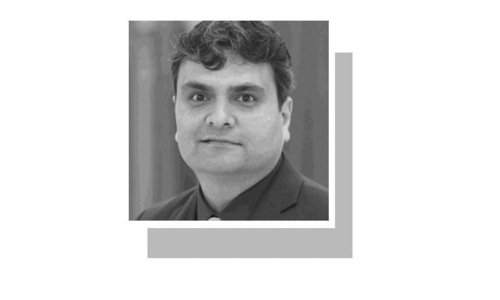
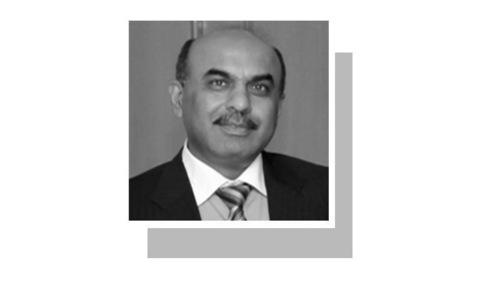












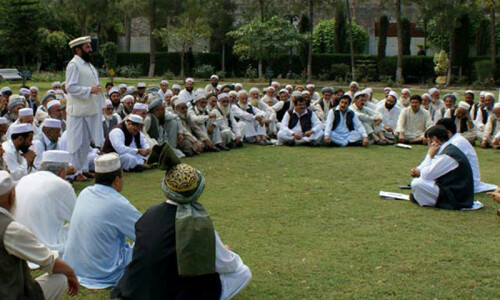

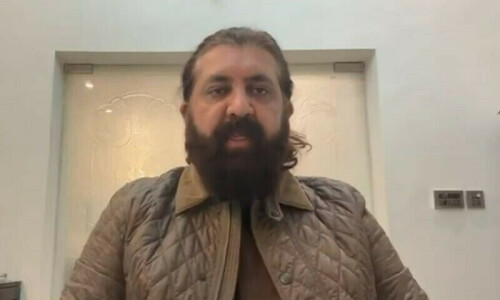
















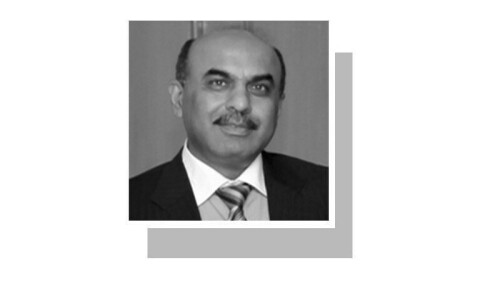

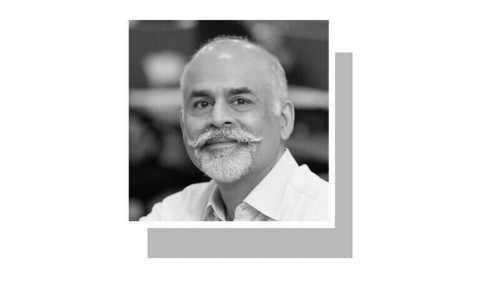





Dear visitor, the comments section is undergoing an overhaul and will return soon.